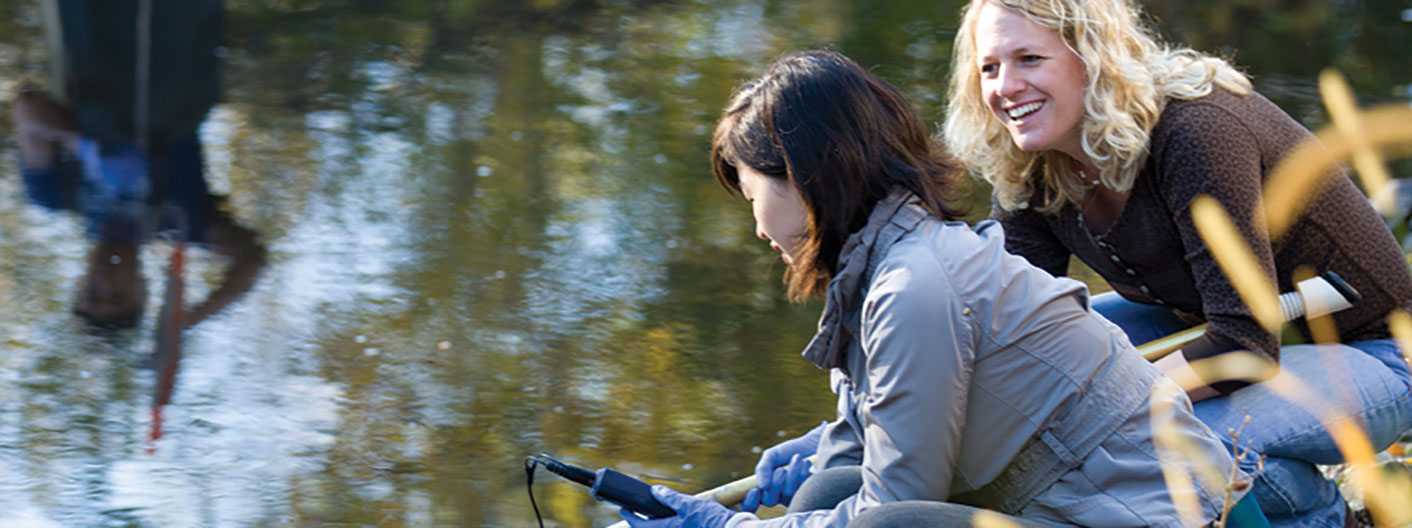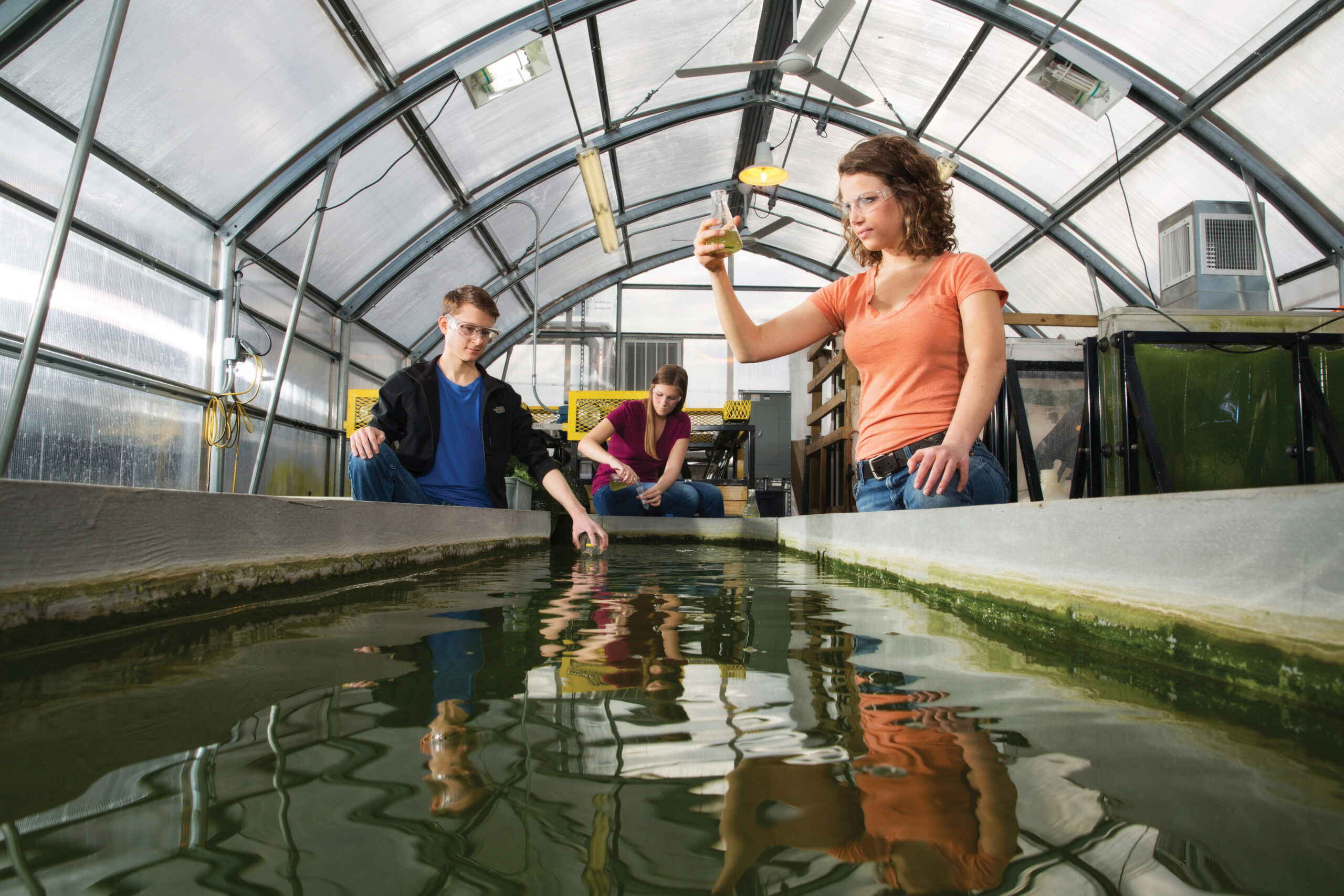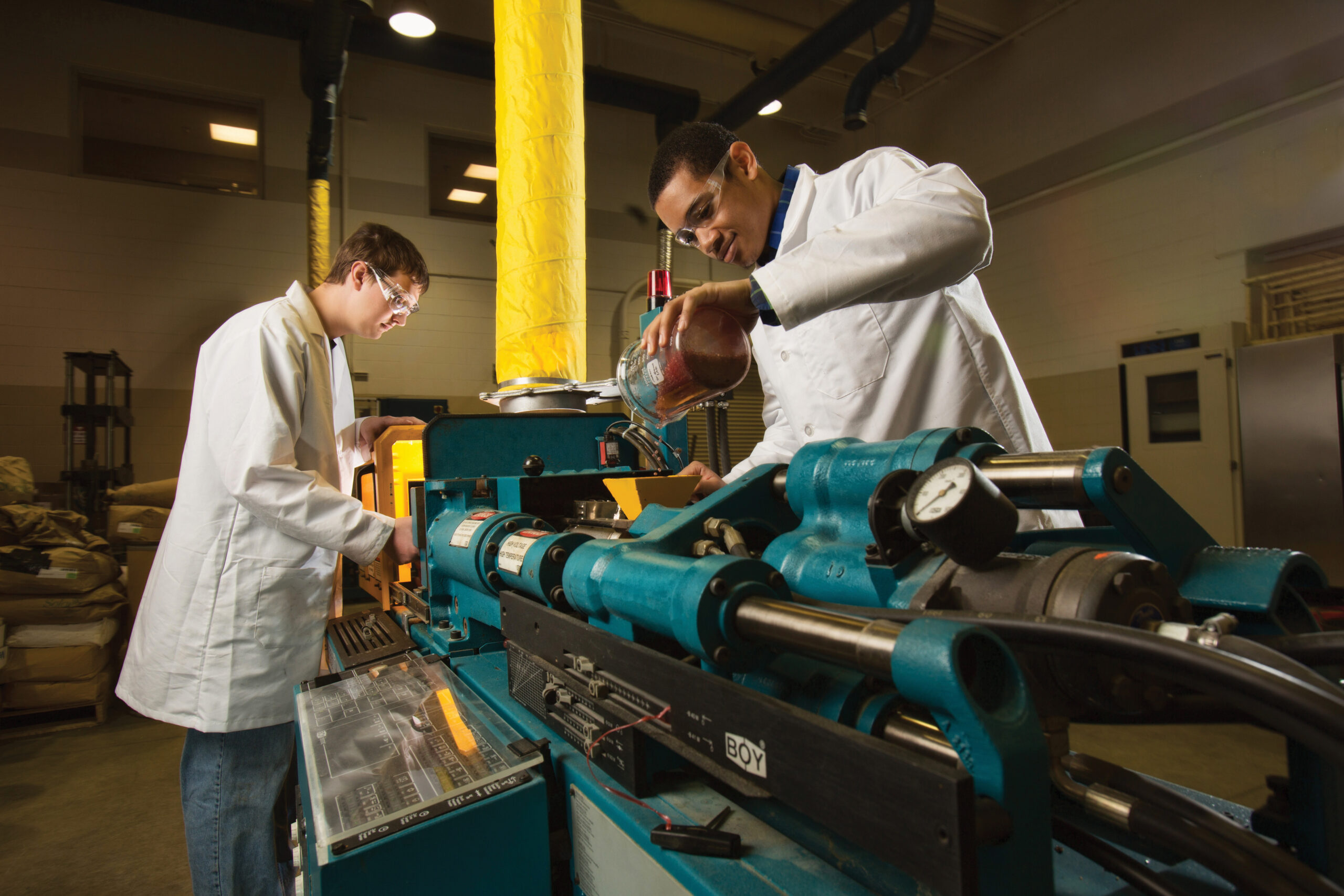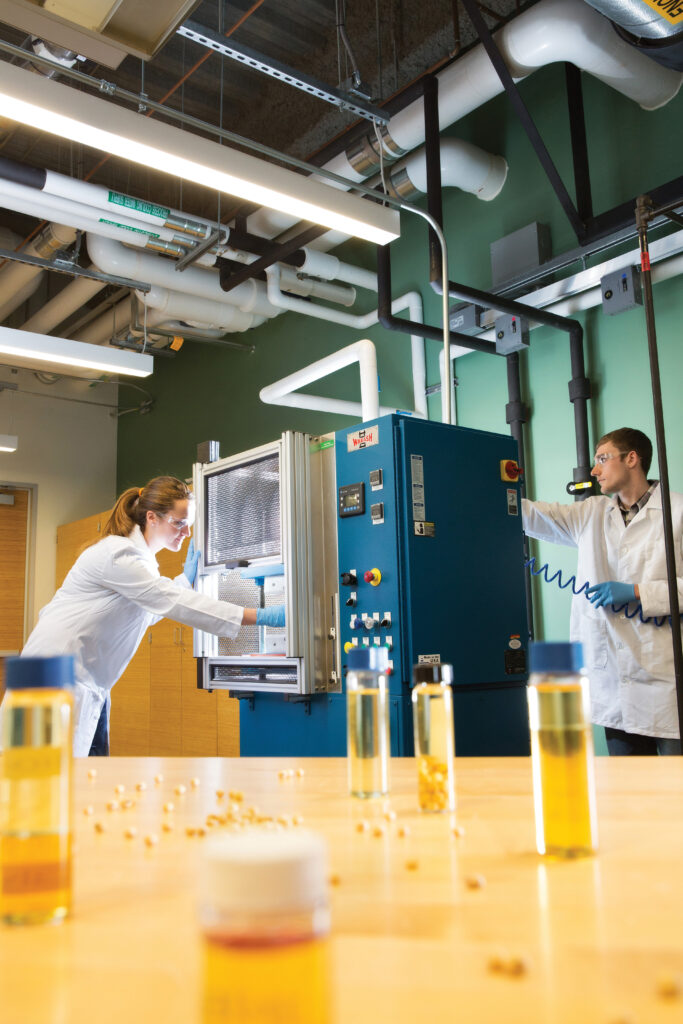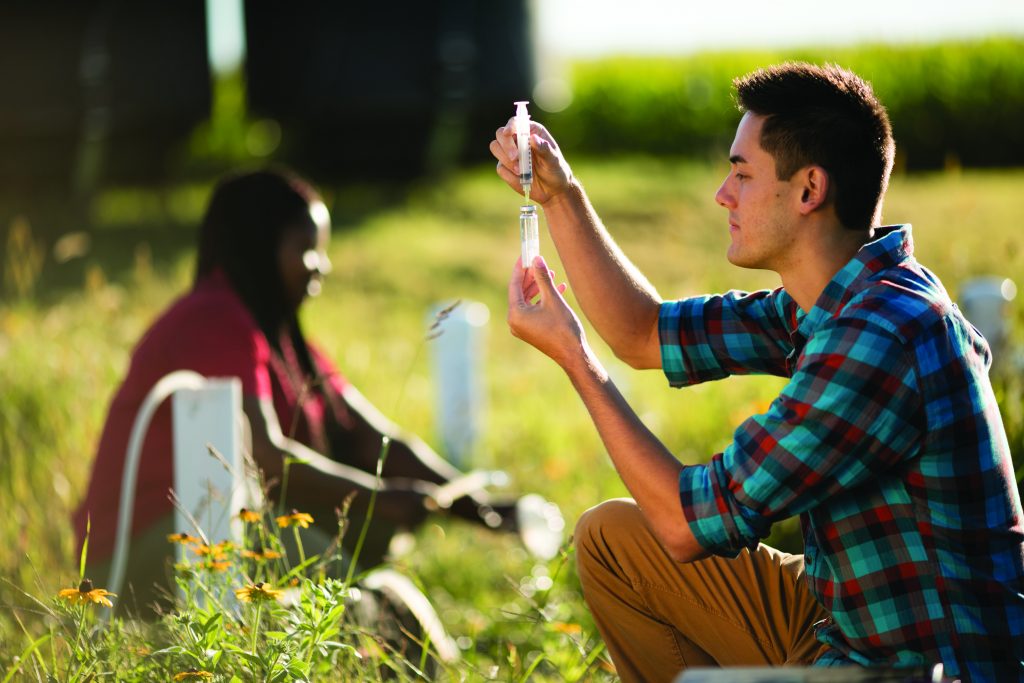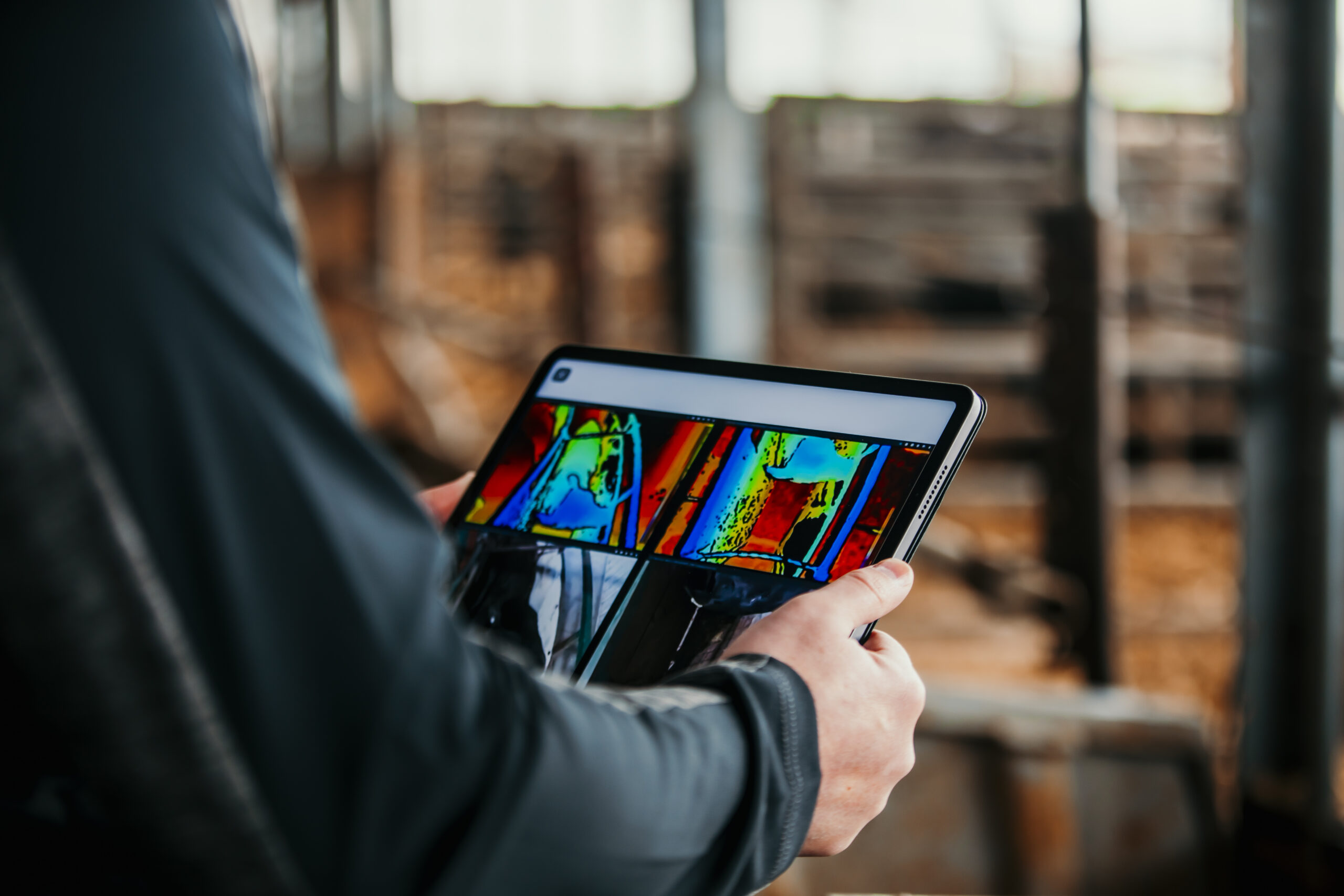Your Discovery In The Making
Do you want to make a big difference in the everyday lives of people locally and globally— helping to use bioresources for safe food, a clean environment and energy?The engineers who do this work are interested in the application of biology and engineering meeting core human needs.
Biological systems engineering involves the sustainable production, storage and conversion of biobased ingredients and materials into useful products ranging from everyday food
to nutraceuticals and therapeuticals, and to biologically-derived fuels, chemicals, plastics and other industrial materials. How can
we make the biological supply chain more sustainable – lowering energy and water consumption, lowering emissions and
reducing pollution?
A secure food supply, clean water and air, and renewable energy sources are important to everyone. In today’s global marketplace, grains, produce and livestock are transported from country to country, making food security and safety a priority. Biological systems engineers help safeguard our air, water and food supply by developing engineering solutions to meet the existing and emerging needs of bio-based production systems and industries globally.

